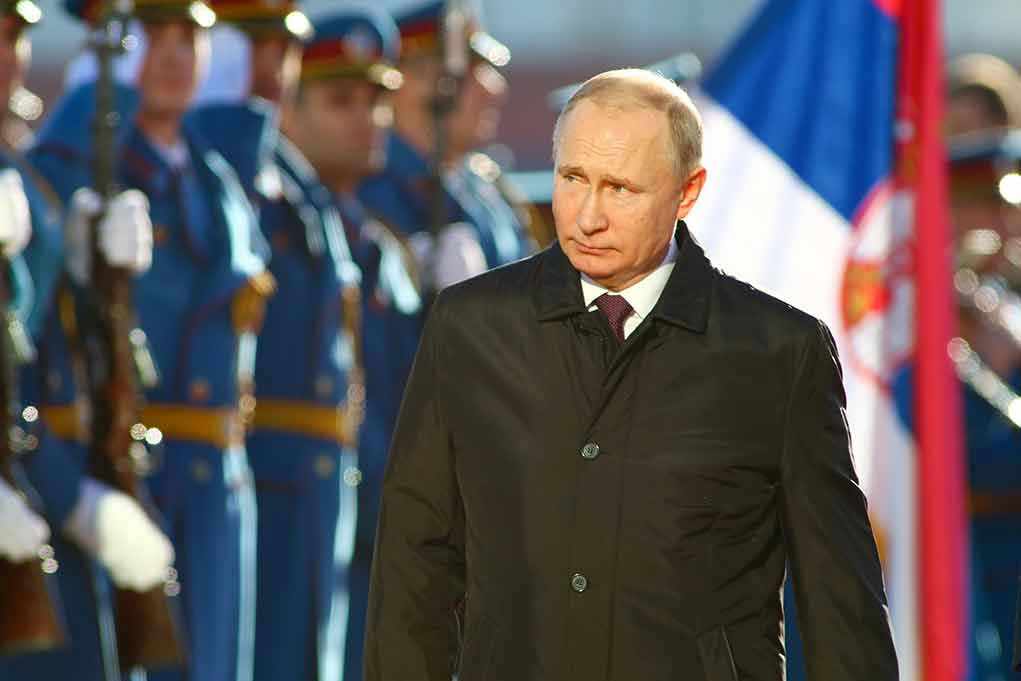
President Trump’s abrupt declaration that Ukraine can defeat Russia represents one of the most dramatic foreign policy reversals in modern presidential history, completely abandoning his previous skeptical stance on Ukrainian victory prospects.
Story Highlights
- Trump publicly stated Ukraine is “coping well” and can win against Russia during high-profile diplomatic events in September 2025
- The president set aggressive deadlines for Russian withdrawal, threatening massive sanctions and tariffs on nations trading with Russia
- Trump expressed personal disappointment in Putin, marking a significant shift in their complex relationship
- US arms supplies to Ukraine were simultaneously halted, creating tension between diplomatic pressure and military support
From Skeptic to Supporter: The Windsor Castle Revelation
Trump’s transformation became unmistakably clear during a September banquet at Windsor Castle alongside UK Prime Minister Keir Starmer. The president declared Ukraine was successfully managing the war’s challenges and suggested Russian economic collapse was imminent. This marked a complete departure from his earlier transactional approach that blamed both sides for the conflict’s origins.
The timing proved particularly significant, occurring during joint diplomatic events with key European allies. Trump’s statements carried amplified weight given the international setting, signaling to both Putin and global leaders that American policy had fundamentally shifted toward active support for Ukrainian victory.
Deadline Diplomacy: Economic Warfare Replaces Military Aid
Trump’s new strategy centers on aggressive economic pressure rather than continued military assistance. In July 2025, he initially threatened secondary tariffs on nations trading with Russia if peace wasn’t achieved within 50 days. Two weeks later, he shortened the deadline to just 10-12 days, demonstrating escalating impatience with Russian intransigence.
This approach represents classic Trump negotiating tactics applied to geopolitical conflict. By halting US arms supplies while simultaneously threatening devastating economic consequences, he’s attempting to force Putin’s hand through financial pressure rather than battlefield superiority. The strategy risks Ukrainian military capacity while betting on Russia’s economic vulnerability.
Putin’s Disappointment: Personal Relationships Meet Geopolitical Reality
Perhaps most revealing was Trump’s admission of personal disappointment in Putin during the September press conference. This emotional element suggests the policy shift stems partly from Trump feeling betrayed by the Russian leader’s failure to respond to earlier diplomatic overtures.
Trump hinted at possessing undisclosed information about recent heavy Russian losses, referencing new intelligence that may have influenced his changing perspective. This suggests classified briefings revealed Russian weakness that wasn’t previously apparent, providing confidence that economic pressure could succeed where military aid had stalled.
Strategic Gamble: Economic Leverage Versus Military Support
The president’s simultaneous halt of arms supplies while promising devastating sanctions creates a high-stakes gamble. Ukrainian forces must maintain defensive capabilities without American weapons while Trump attempts to collapse Russia’s economy through international isolation. Success depends on whether Putin blinks before Ukrainian defenses crumble.
European allies appear supportive of renewed American engagement, though concerns remain about execution. King Charles III and UK leadership have publicly endorsed continued Ukrainian support, providing diplomatic cover for Trump’s new approach. However, the effectiveness of economic pressure without corresponding military backing remains untested in this conflict.
Sources:
Trump stated that Putin let him down regarding the issue of ending the Russian-Ukrainian war
Trump Russia Putin threat war Ukraine tariffs sanctions
Trump hints at new information about Russian losses
Trump promises major statement on Russia-Ukraine war

